The Biological Clocks Training Program (BCTP) is designed to provide predoctoral students with:
- a general knowledge of circadian rhythms at the behavioral, physiological and anatomical levels;
- a comprehensive knowledge of how the circadian clock functions at the molecular and biochemical levels in different organisms;
- opportunities to develop their oral and written presentation skills; and
- exposure to eminent circadian clock researchers who share their goals and interests.
Research Training: BCTP students are admitted through several departments and programs on campus including the Department of Biology, the Department of Veterinary Integrative Biosciences, the Faculty of Genetics, and the Texas A&M Institute for Neuroscience. Incoming doctoral students perform rotations through at least two laboratories prior to selecting a lab home for dissertation research. The number and duration of rotations, and sources of support, are tailored to individual students. Interactions among the CBCR labs encourage multidisciplinary approaches in research design.
Coursework: All BCTP doctoral students enroll in a course on Biological Clocks (BIOL 601). This graduate level course covers the formal properties of the circadian clock, as well as in depth studies of the clocks in major model organisms and humans that incorporates classical and current literature.
All trainees (and other members of CBCR laboratories) participate year-round in the Clocks Journal Club (CJC), attended by faculty, postdocs, and students from the participating labs. Presentations include journal article reviews and research talks.
The remainder of coursework is customized for each student in consultation with his or her graduate advisory committee to be compatible with the program requirements for the chosen Ph.D. emphasis.
Interaction with the Biological Clocks Community: Trainees will participate in the annual Texas Society for Circadian Biology and Medicine (TSCBM) meeting, which is held on a rotating basis at Texas A&M University, University of Texas Southwestern Medical School, and University of Texas Health Science Center in Houston. In addition, trainees have the opportunity to attend international circadian rhythms meetings such as the Gordon Research Conference on Chronobiology and the Society for Research on Biological Rhythms (SRBR) conference.
Interested in predoctoral or postdoctoral training within the CBCR? Contact us and tell us of your interests, background, and what level of training you seek.
